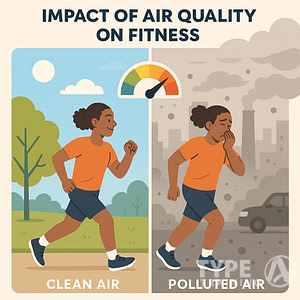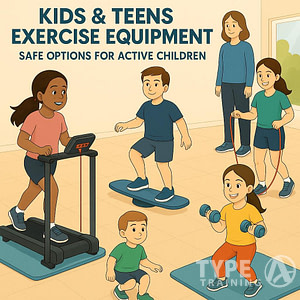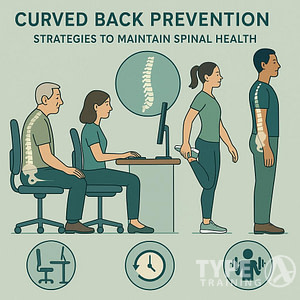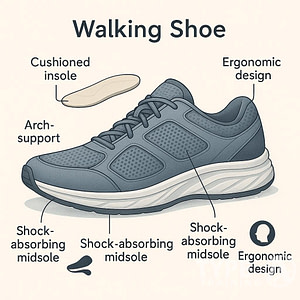Overview of What a Ketogenic Diet Is
The ketogenic diet (keto) is a nutritional approach distinguished by its high-fat and low-carbohydrate composition. The goal is to induce a metabolic state called ketosis, where the body primarily uses fat for fuel instead of carbohydrates. This shift dramatically changes your body’s energy source, generating ketones as a byproduct.
Ketosis and Energy Source
In ketosis, your liver converts fats into ketones, which serve as an efficient energy source for the brain, organs, and cells. Unlike glucose, ketones offer a stable supply of energy, which can help improve cognitive function and mental clarity. This metabolic shift is essential for achieving several potential health benefits associated with the ketogenic diet.
Macronutrient Ratios
A typical ketogenic diet consists of approximately 75% fats, 20% protein, and 5% carbohydrates. It’s crucial to moderate your protein intake because excessive protein can be converted into glucose, undermining your efforts to maintain ketosis. High-quality fat sources include olive oil, avocados, nuts, and butter. Carbohydrates are generally restricted to non-starchy vegetables like cauliflower and broccoli.
12 Keto Diet Myths
1. Health benefit claims are just claims. There is no science yet.
The idea that the ketogenic diet lacks scientific backing is a common misconception. Developed in the 1920s by researchers at Johns Hopkins Medical Center, the ketogenic diet was initially created to treat epilepsy. Since then, many studies have examined its impact on various health aspects.
Popular posts:
Key Health Benefits Based on Studies:
- Epilepsy Management: Originally designed to help control seizures in epilepsy patients, it continues to be an effective treatment for many.
- Weight Loss: Numerous studies suggest that a ketogenic diet can aid in weight loss by increasing satiety and reducing overall calorie intake.
- Type 2 Diabetes: Research indicates potential benefits for blood sugar control and insulin sensitivity.
Misinterpreted Studies
It’s essential to recognize that while some critics argue there is no long-term evidence, this doesn’t negate the significant short-term findings. The misinterpretation often comes from a lack of understanding or a select review of available research.
Common Myths and Facts:
| Myth | Fact |
|---|---|
| The diet is only a fad with no real benefits | Studies show that it has legitimate effects on various health conditions, including epilepsy and metabolic syndrome |
| It leads to nutritional deficiencies | With proper planning, a ketogenic diet can be nutritionally balanced and rich in essential vitamins and minerals |
| It’s impossible to exercise on a ketogenic diet | Many athletes successfully follow a ketogenic diet and report sustained energy levels for workouts and competition |
By diving into the research, it becomes evident that the ketogenic diet boasts a range of validated benefits, dispelling the myth that these health claims are unsubstantiated. For further insights and details, explore this comprehensive article on keto diet myths.
2. You Can’t Exercise on Keto
A common misconception is that the ketogenic diet restricts you from engaging in high-intensity workouts. The basis of this myth lies in the assumption that lower glycogen stores, which result from low carbohydrate intake, impede performance.
In reality, once your body becomes adapted to the keto diet, it efficiently utilizes fat as a primary energy source. This state is known as being “fat-adapted.” During this phase, you can perform both endurance and high-intensity exercises effectively.
Key Points to Consider:
- Adaptation Period: Initially, you might experience a temporary drop in performance. This period, often called the “keto flu,” typically lasts a few days to a week.
- Energy Utilization: After adaptation, your body shifts to using ketones and fat for fuel, which are efficient sources of energy for prolonged physical activities.
- Electrolyte Balance: Maintaining proper hydration and electrolyte levels is crucial. Sodium, potassium, and magnesium are especially important to avoid cramps and fatigue.
Practical Tips:
- Gradual Transition: Ease into the keto diet while maintaining your exercise routine. Gradually reduce carbs while incorporating more healthy fats.
- Monitor Performance: Keep track of your performance levels and adjust your diet accordingly. Some athletes find incorporating targeted carbs around their workouts beneficial.
- Supplementation: Consider electrolyte supplements to maintain balance and improve overall energy levels.
For additional insights, the myth that you can’t perform high-intensity workouts on keto is also addressed, showcasing how proper adaptation can overcome initial challenges.
3. Keto is a High-Fat, High-Protein Diet
The ketogenic diet, often abbreviated as keto, emphasizes high fat intake. Typically, fats account for about 70-75% of your daily caloric intake. These fats come from sources such as butter, oils, nuts, and fatty fish.
In addition to the high-fat content, the diet also includes moderate protein consumption. Protein makes up around 20-25% of your caloric intake. Protein sources include meat, eggs, and full-fat dairy products. Unlike traditional low-carb diets, keto significantly restricts carbohydrate intake to below 50 grams per day, often closer to 20-30 grams.
Macronutrient Breakdown
| Macronutrient | Standard Ketogenic Diet | High-Protein Ketogenic Diet |
|---|---|---|
| Fat | 75% | 60-65% |
| Protein | 20% | 30% |
| Carbohydrates | 5% | 5-10% |
This detailed breakdown helps you understand how the keto diet functions differently compared to other low-carb diets. While the high-fat intake is essential for producing ketones, the moderate protein ensures that your body meets its daily protein needs.
The keto diet also requires careful planning and adherence. Eating too many carbohydrates can disrupt ketosis, the metabolic state that helps you burn fat for fuel.
Common Food Choices
- Fats: Avocado, coconut oil, olive oil
- Proteins: Beef, chicken, eggs, fatty fish
- Carbohydrates: Leafy greens, cauliflower, broccoli
Understanding these elements will help you maintain success on the keto diet. The balanced approach of high fats and moderate proteins promotes effective weight management and can provide numerous health benefits.
4. Keto is a Weight Management Diet Only
The ketogenic diet is often mistakenly thought of as solely for weight management. While it’s true that many people turn to keto for its potential in promoting weight loss, it offers several other health benefits.
Benefits Beyond Weight Management
- Improved Mental Clarity: When your body enters a state of ketosis and starts using fats for fuel, you might experience sharper mental focus and clarity.
- Increased Energy Levels: As your body adapts to burning fats instead of carbohydrates, you may find yourself feeling more energetic and less prone to energy crashes.
- Better Blood Sugar Control: Keto can help stabilize blood sugar levels, making it beneficial for those managing conditions like type 2 diabetes.
Healthful Fat Consumption
The keto diet emphasizes the consumption of healthy fats such as avocados, olive oil, nuts, and butter. These fats are vital for maintaining good health and energy. For instance, incorporating quality fat sources helps sustain ketosis, allowing your body to efficiently use fats for energy.
Reducing Hunger and Increasing Satiety
One of the reasons people find success with keto is that it can help reduce hunger and increase feelings of fullness between meals. This is due to the high fat and moderate protein content of the diet, which helps regulate hunger hormones.
Enhanced Dietary Awareness
The restrictive nature of the diet often leads to increased awareness of food and nutrient intake. You may find yourself more inclined to cook at home and plan meals with a balanced intake of vital nutrients.
Short-Term Effects and Adaptation
It’s important to note that while there are numerous benefits, transitioning to keto can result in short-term side effects, sometimes referred to as the “keto flu”. Symptoms can include fatigue, headaches, and irritability as your body adapts to ketosis.
Even though the keto diet is effective for weight management, acknowledging its broader health benefits can provide a more comprehensive perspective on its potential impact on your overall health.
5. You will lose muscle mass on the keto diet and lifestyle
Engaging in a keto diet might raise concerns about muscle loss. Research indicates that muscle mass can be affected by a ketogenic diet compared to a non-ketogenic diet Muscle Shrinkage and Bone Loss on Keto Diets?. Those on a keto diet might not experience the same muscle mass gains as those following traditional diets. For example, in one study, participants on a non-ketogenic diet gained approximately three pounds of muscle, whereas those on a keto diet lost about 3.5 ounces.
To mitigate muscle loss, it’s crucial to focus on high-quality protein sources. Proteins rich in key muscle-building amino acids, such as leucine, are essential. Leucine is predominantly found in animal-based proteins, which are typically more suited to the keto diet.
Maintaining muscle mass on a keto diet also requires a balance of macronutrients. For instance, a 155-pound individual on a muscle gain diet consuming 2,300 calories might aim for roughly 110 grams of protein and 50 grams of carbs, with the remaining calories coming from fats Building Muscle on Keto: A Complete Guide.
Here are some tips to help maintain muscle mass while on a keto diet:
- Prioritize High-Quality Proteins: Choose proteins that include all essential amino acids.
- Regular Strength Training: Engage in consistent weight lifting routines
- Monitor Protein Intake: Ensure an adequate daily intake of protein based on your weight and activity level.
- Balance Your Macronutrients: Keep track of your carbohydrate and fat intake to maintain ketosis without compromising muscle health.
By adhering to these guidelines, you can lessen the potential muscle loss while following a ketogenic lifestyle.
6. Ketosis and Ketoacidosis Are the Same Thing
It’s a common misunderstanding that ketosis and ketoacidosis are identical, but they are distinct processes. Ketosis is a natural metabolic state that occurs when your body switches to burning fat for energy instead of carbohydrates. This state is typically achieved through a low-carbohydrate diet, such as the ketogenic diet.
In contrast, ketoacidosis is a dangerous condition that most frequently occurs in individuals with type 1 diabetes. It happens when the body produces high levels of ketones, leading to an acidic environment in the blood. This condition, known as diabetic ketoacidosis, requires immediate medical attention.
Here’s a brief comparison:
| Aspect | Ketosis | Ketoacidosis |
|---|---|---|
| Trigger | Low-carbohydrate diets, fasting | Lack of insulin, often in type 1 diabetes |
| Ketone Levels | Moderate | Extremely high |
| Health | Generally safe when monitored | Life-threatening if untreated |
| Symptoms | Mild dehydration, increased urination | Severe dehydration, nausea, vomiting |
These key differences highlight why it is critical to not confuse the two. While ketosis is a controlled and often beneficial state, ketoacidosis is a medical emergency that requires swift intervention. For more information, you can visit articles like Healthline and Medical News Today.
Being informed about these differences helps you make safer and healthier choices when following a ketogenic diet or managing diabetes.
7. Like popular low-carb diets, you should eat any kind of fat on the keto diet
A common fallacy is the belief that on the keto diet, any type of fat is acceptable, much like other low-carb diets. While the diet permits high fat intake, it’s crucial to focus on the quality of the fats consumed.
Different Types of Fats:
- Saturated Fats: Found in animal products like meat and dairy, as well as coconut oil and butter. You can consume these in moderation.
- Unsaturated Fats: These are healthier fats found in avocados, olive oil, and nuts.
- Trans Fats: Often found in processed foods like snacks and baked goods, these should be avoided.
Key Points to Remember:
- Focus on Whole Foods: Opt for natural sources of fats such as nuts, seeds, and avocados over processed items.
- Avoid Processed Oils: Stay away from trans fats and highly refined oils like canola and soybean oil, which can counteract the benefits of a low-carb diet.
- Balanced Intake: Although keto is high in fat, balance your intake with nutritionally rich foods to maintain overall health without any variations.
By emphasizing the quality of fat, you ensure that your keto diet remains beneficial and supports your health goals, including improved cardiovascular health and reduced inflammation.
For more details on misconceptions about fats on keto, see the article debunking keto myths about fat.
8. You Will Always Have Low Energy on Keto
It’s a common belief that switching to a ketogenic diet means you’ll constantly struggle with low energy. This myth persists, but it’s far from the truth.
When beginning a keto diet, you may initially experience a dip in energy as your body transitions to burning fat for fuel instead of carbohydrates. This period, often called the “keto flu,” can include symptoms like fatigue, headaches, and irritability. However, these effects are temporary and usually resolve within a week or two.
After your body adapts and enters ketosis, you may find that your energy levels stabilize and even increase. This is because fat is a more consistent source of energy than carbohydrates. Many people report feeling more energized and alert once fully adapted to a ketogenic lifestyle.
To maintain your energy levels, make sure you are:
- Staying Hydrated: Dehydration can contribute to feeling tired. Drink plenty of water throughout the day.
- Consuming Enough Electrolytes: Imbalances in sodium, potassium, and magnesium can cause fatigue. You can replenish these through foods like avocados, nuts, and leafy greens or by taking supplements.
- Eating Quality Fats: Healthy fats like those found in olive oil, nuts, and fatty fish provide sustained energy.
- Getting Adequate Sleep: Quality sleep supports overall energy levels and well-being.
Following these tips can help you avoid the misconception that you will always feel low energy on a keto diet. Instead, with proper adjustment and care, you may experience steady, reliable energy throughout the day.
9. You should only stay on keto for short periods of time
It’s widely believed that the keto diet should only be followed for short durations. Initially, starting the keto diet involves a significant adjustment period for your body. Typically, it takes 2-4 days to enter ketosis, where your body begins to burn fat instead of carbohydrates for energy.
Recommended Cycle:
- First Phase: Follow the keto diet for 2-3 months to allow your body to become fat-adapted.
- Break Period: Take a break for several weeks to give your body a chance to readjust.
- Reevaluation: Reassess how well the diet is working for you and, if successful, consider resuming it.
Following a cyclic approach helps mitigate potential downsides of long-term keto adherence, such as nutrient deficiencies or digestive issues. Experts suggest a breakdown of daily calorie intake as 70-80% from fat, 10-20% from protein, and 5-10% from carbohydrates.
Learn more about keto timing and nutritional breakdowns at Ancient Nutrition and Perfect Keto.
There remains ongoing debate about the long-term safety and benefits of the keto diet. Make sure to consult with healthcare providers before making significant changes to your diet plan.
10. You Can Occasionally Cheat on Keto
While sticking to the ketogenic diet can be challenging, occasional slip-ups might not be the end of the world. It’s important to approach cheat days with a strategy. For instance, engaging in exercise around the time you indulge can be beneficial, as physical activity increases insulin sensitivity, helping your body handle the extra carbs more effectively.
Remember to swiftly return to your low-carb regimen. The longer you delay, the harder it becomes to get back into ketosis. Don’t be too harsh on yourself if you have a cheat meal. Stress can have negative impacts on your overall health and diet adherence.
Common Cheat Day Tips:
- Exercise: Plan your cheat meals around workouts to manage insulin response.
- Quick Return: Get back to your keto routine as soon as possible.
- Moderation: Aim for moderation to minimize disruptions to your ketosis.
It’s normal not to be perfect with your diet all the time. The key lies in managing those moments effectively and maintaining the overall integrity of your dietary goals. For more on the impact of cheat days on keto, check out this guide on keto cheat days.
11. You Can’t Drink Any Alcohol on Keto
It’s a common misconception that you must avoid all alcohol on a keto diet. In truth, there are numerous low-carb alcohol options that can fit within your ketogenic lifestyle.
Low-Carb Alcoholic Drinks
Spirits:
Pure distilled spirits like vodka, gin, rum, tequila, and whiskey contain zero carbs. These drinks can be enjoyed neat or with mixers like club soda or diet tonic.
Wine:
Dry wines, such as red or white wines, typically contain around 3-4 grams of carbs per glass (5 oz.). Champagne or sparkling wines also tend to be lower in carbs.
Drinks to Avoid
It’s important to stay clear of sugary mixers, sweet liqueurs, and high-carb beers. These can quickly add unwanted carbs and calories. Here are some drinks to be cautious of:
- Sweetened Cocktails: Margaritas, mojitos, and other cocktails often include sugary syrups and mixers.
- Dessert Wines: These wines tend to have a higher sugar content.
- Certain Beers: Many traditional beers are high in carbs, although there are low-carb beer options available.
Tips for Drinking Alcohol on Keto
- Moderation: While alcohol can be included, moderation is key. Excessive consumption can hinder weight loss and affect ketosis.
- Stay Hydrated: Alcohol can lead to dehydration. Make sure to drink plenty of water.
- Mind Your Cravings: Alcohol might lower your inhibitions and lead to poor food choices. Plan ahead to avoid this.
Choosing the right alcoholic beverages can allow you to enjoy social events without compromising your keto goals. You can still have a drink without breaking your diet by making informed choices.
12. Keto Affects Men and Women Differently
Hormonal Differences
Men and women have different hormonal makeups that can influence how each sex responds to the ketogenic diet. For women, hormones like estrogen and progesterone play significant roles. These hormones can impact how your body metabolizes fat and carbohydrates. Men, on the other hand, with higher levels of testosterone, might experience fewer hormonal fluctuations.
Carb Sensitivity
Women might need to be more strategic with carbohydrate intake. Menstruating women, in particular, can use their menstrual cycle as an indicator of whether their diet is supporting their body’s needs. A regular menstrual cycle often signifies that the body is balanced and feeling safe on the diet.
Weight Loss Sensitivity
When it comes to weight loss, women are generally more sensitive to dietary changes compared to men. This means that women might experience more pronounced effects, both positive and negative, on a keto diet.
Key Takeaways
- Hormonal Impact: Women must consider hormonal changes.
- Carb Strategy: Women may need a more flexible approach to carbohydrates.
- Sensitivity to Diet: Women might experience more significant changes with dietary adjustments.
Understanding these differences can help tailor the ketogenic diet to better fit the specific needs of men and women, potentially enhancing the effectiveness and sustainability of the diet.
Final Thoughts on the Ketogenic Diet
The ketogenic diet continues to be a topic of widespread discussion and debate. Many misconceptions abound, but understanding the facts can help. Below are some of the most prevalent myths and the realities behind them:
Common Myths and Realities:
- Myth: The keto diet is only for weight loss.
Reality: While weight loss is a significant benefit, the keto diet also aids in reducing blood sugar levels and improving mental clarity. - Myth: You can’t eat fruits and vegetables on keto.
Reality: Some fruits and vegetables are low in carbs and can be consumed in moderation. Vegetables like spinach, kale, and cauliflower are excellent choices. - Myth: The keto diet leads to nutrient deficiencies.
Reality: With proper planning, the keto diet can be nutritionally complete. Including a variety of nutrient-dense foods helps balance your diet.
Benefits
- Increased Energy: By burning fats instead of carbs, many people report stable energy levels.
- Improved Mental Focus: The brain benefits from a steady supply of ketones, often leading to enhanced focus and clarity.
- Blood Sugar Control: Especially beneficial for those with type 2 diabetes, as it helps maintain lower blood sugar levels.
Potential Downsides
- Initial Fatigue: Often referred to as “keto flu,” some individuals may feel tired during the initial adaptation phase.
- Digestive Issues: Due to the diet’s high-fat content, some may experience digestive discomfort if not managed properly.
Myths Regarding Ketosis
- Myth: Ketosis is dangerous.
Reality: Nutritional ketosis is a normal metabolic state. Continuous monitoring and balance are crucial to maintaining safety.
Balanced Approach Tips:
Incorporate Variety: Ensure a range of vegetables, proteins, and healthy fats to avoid monotony and nutrient gaps.
Stay Hydrated: Increased water and electrolyte intake can mitigate initial side effects.
Monitor Carbs: Stay within the recommended carb range for effective ketosis, typically 20-50 grams per day.
By debunking these myths, you can approach the ketogenic diet with more confidence and clarity. Adopting a balanced, well-informed approach ensures that you make the most out of its benefits. For further reading and an in-depth look at specific myths, you can visit Ancient Nutrition’s article on keto myths or explore Dr. Robert Kiltz’s detailed debunking of keto myths.
Frequently Asked Questions about ketogenic Diet
What are the potential risks associated with a long-term keto diet?
Long-term adherence to a keto diet can potentially lead to nutrient deficiencies due to the limited variety of foods allowed. You might experience deficiencies in vitamins and minerals such as magnesium, potassium, and vitamins B and C. Additionally, there may be an increased risk of liver and kidney issues due to the high fat content and the strain it can place on these organs.
What are the common side effects when starting a keto diet?
When you first start a keto diet, you may encounter symptoms commonly referred to as the “keto flu.” These can include headaches, fatigue, nausea, dizziness, and irritability. These symptoms are typically temporary and result from your body adjusting to a lower carbohydrate intake and shifting to ketone production for energy.
How safe is the keto diet for individuals with pre-existing health conditions?
For individuals with pre-existing health conditions such as diabetes, heart disease, or kidney issues, it is crucial to consult with a healthcare provider before starting a keto diet. The high fat intake and drastic reduction in carbohydrates can interact with medications and potentially exacerbate certain health conditions. Monitoring by a healthcare professional is recommended to ensure safety and efficacy.
What are the most significant benefits observed from following a keto diet?
The keto diet is known for several benefits, including significant weight loss and improved blood sugar control. Many people also report reduced hunger and cravings, increased mental clarity, and better energy levels throughout the day. Additionally, some studies suggest that a keto diet can improve cholesterol levels and reduce inflammation.
Can the keto diet have negative effects on metabolism or energy levels over time?
Prolonged keto dieting may lead to metabolic changes that can affect your energy levels. Some people report experiencing periods of low energy and fatigue after a while on the diet. This can be due to the body’s adaptation to fat as the primary fuel source, which might not be as efficient for all individuals. Additionally, metabolic slowdown can occur if caloric intake is too restricted.
What are the common misconceptions regarding the effectiveness of the keto diet for weight loss?
A common misconception is that simply reducing carbs will automatically lead to weight loss. However, the effectiveness of the keto diet for weight loss also depends on factors like overall caloric intake, individual metabolic responses, and adherence to the diet. Another myth is that you need to consume high amounts of fat to lose weight on keto, but achieving a balance is crucial for long-term success and health.






